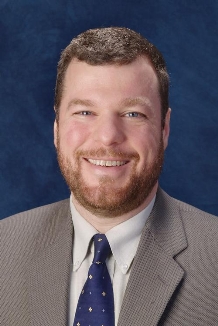The Remand
I am out the door for another remand hearing before the Social Security Administration Office of Hearings Operations in Portland, Oregon. This hearing resulted from an appeal to the Appeals Council from a prior Unfavorable Decision. We lost at hearing the first time when we received an Unfavorable Decision, and appealed the case to the Social Security Appeals Council. The Appeals Council sent this case back for another hearing. When the Appeals Council or a Federal Court sends a case back to the hearings office, we call this a "remand."
How We Got Here
After we received the Unfavorable Decision, we filed an appeal with the Appeals Council. This is a Social Security office in Falls Church, Virginia that reviews all appeals of Social Security Disability hearings in the United States. The Appeals Council is split into several "branches." This is because the case law on how Social Security claims are decided varies in different parts of the country.
The Appeals Council reviews the Administrative Law Judge's Decision for legal and factual errors. Legal errors occur when the Administrative Law Judge misapplies the law. Factual errors occur when the Judge does not have evidence to support a factual finding, or misconstrues the evidence in the claims file. The Appeals Council will also look to see if the hearings Judge's mistake is a difference maker. That is a mistake that could make a difference in the case's outcome.
If the Appeals Council finds a mistake, it could find the Claimant disabled, but that rarely happens. Instead, if the Appeals Council finds a mistake, it will send the case back to the Administrative Law Judge that heard the case. When it does, the Appeals Council will issue an Remand Order. In this Order, the Appeals Council tells the Administrative Law Judge what they must do to correct the errors.
If the Appeals Council refuses to review the case, then the Claimant can appeal the decision the US District Court in the District where the Claimant lives. This is the Federal Court appeal. There is no trial at Federal Court. Instead, the Claimant's Attorney and the US Attorney's office submit written arguments to a Judge. If the Federal Court Judge finds an error, that judge may send the case back to the hearings judge.
How The Remand Hearing is Different
Because this is a second, and sometimes a third hearing, the remand hearing is different. There has already been a hearing, so many issues have already been addressed, and the Claimant has testified about their limitations an symptoms. There may be some new medical records, and at the hearing, the Administrative Law Judge may have experts testify. What happens that hearing depends on the Remand Order. This is an Order from the Appeals Council telling the Administrative Law Judge to reconsider certain pieces of evidence, or to develop more evidence on a certain issue. Many times, the Appeals Council will order the Administrative Law Judge to have experts testify at the hearing.
Some Remand Orders are very specific, and other are generally, essentially telling the hearings Judge to basically conduct a "do over" hearing.
Facing the Judge You "Reversed"
When a lawyer is successful on an appeal, they will brag to their lawyer friends that "I got the judge reversed." In Social Security hearings, the case goes back to the same judge you "got reversed." Some Judges have no problem with that and others might. I have seen Administrative Law Judges apologize to my client for their mistake, which is admirable.
In today's case, a lot has happened during the course of the appeal. We have updated medical records, obtained another witness statement, and are ready to go.
Related Articles
What Happens At The Social Security Hearing
Should I Appeal My Social Security Denial?
Proving the Social Security Disability Claim
Questions?
We do not typically take on a case that is before the Appeals Council, but if a case has been remanded and you have questions, contact us. We can tell you where you stand.


